Mengke Lian
Learned Belief-Propagation Decoding with Simple Scaling and SNR Adaptation
Jan 24, 2019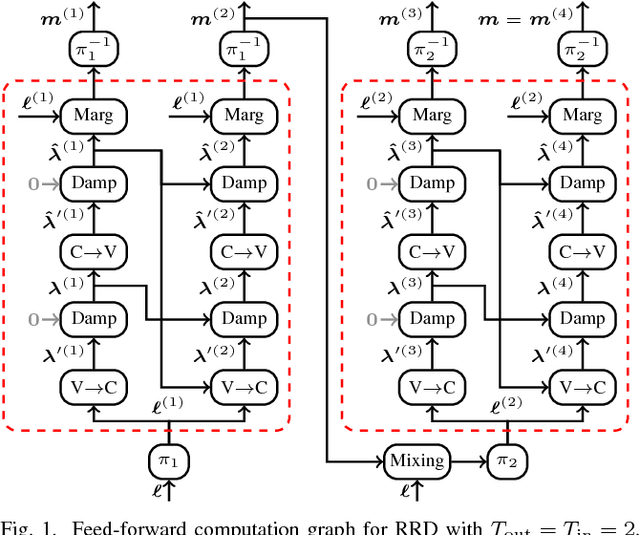

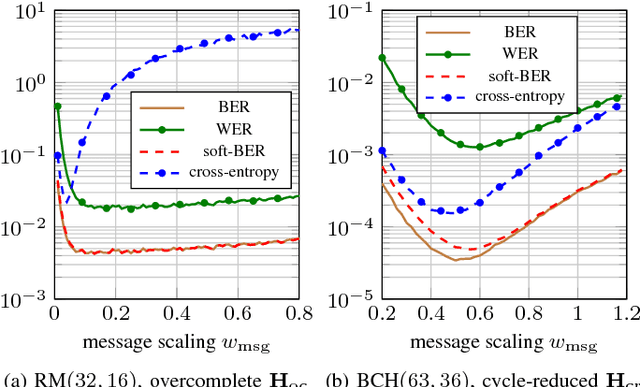
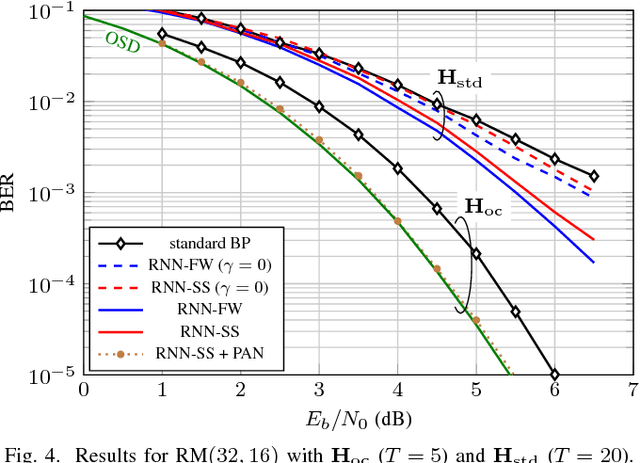
Abstract:We consider the weighted belief-propagation (WBP) decoder recently proposed by Nachmani et al. where different weights are introduced for each Tanner graph edge and optimized using machine learning techniques. Our focus is on simple-scaling models that use the same weights across certain edges to reduce the storage and computational burden. The main contribution is to show that simple scaling with few parameters often achieves the same gain as the full parameterization. Moreover, several training improvements for WBP are proposed. For example, it is shown that minimizing average binary cross-entropy is suboptimal in general in terms of bit error rate (BER) and a new "soft-BER" loss is proposed which can lead to better performance. We also investigate parameter adapter networks (PANs) that learn the relation between the signal-to-noise ratio and the WBP parameters. As an example, for the (32,16) Reed-Muller code with a highly redundant parity-check matrix, training a PAN with soft-BER loss gives near-maximum-likelihood performance assuming simple scaling with only three parameters.
What Can Machine Learning Teach Us about Communications?
Jan 24, 2019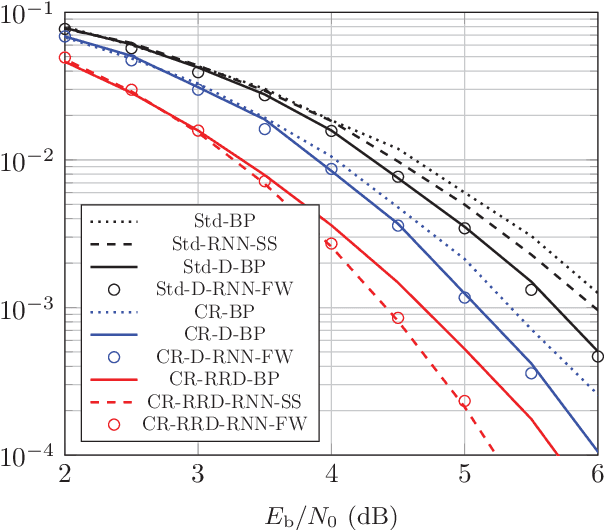

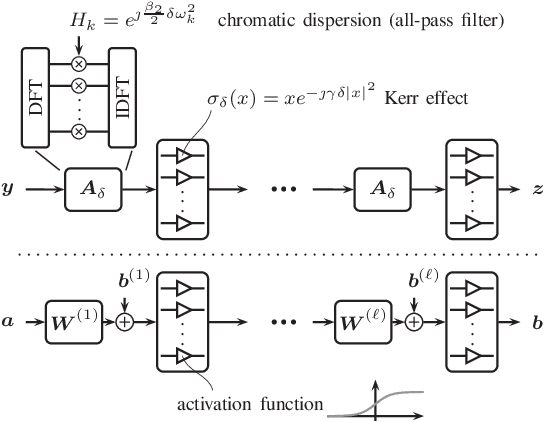
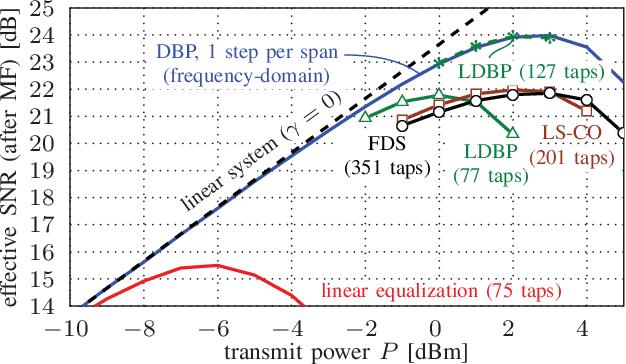
Abstract:Rapid improvements in machine learning over the past decade are beginning to have far-reaching effects. For communications, engineers with limited domain expertise can now use off-the-shelf learning packages to design high-performance systems based on simulations. Prior to the current revolution in machine learning, the majority of communication engineers were quite aware that system parameters (such as filter coefficients) could be learned using stochastic gradient descent. It was not at all clear, however, that more complicated parts of the system architecture could be learned as well. In this paper, we discuss the application of machine-learning techniques to two communications problems and focus on what can be learned from the resulting systems. We were pleasantly surprised that the observed gains in one example have a simple explanation that only became clear in hindsight. In essence, deep learning discovered a simple and effective strategy that had not been considered earlier.
 Add to Chrome
Add to Chrome Add to Firefox
Add to Firefox Add to Edge
Add to Edge